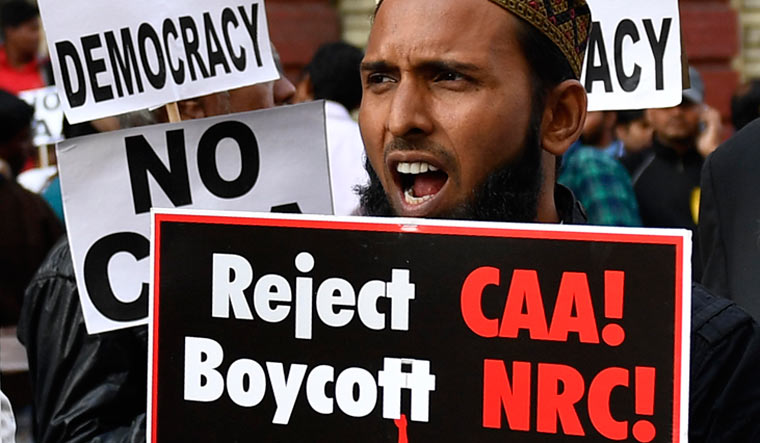The United Nations High Commissioner for Human Rights (OHCHR) has filed an intervention application in the Supreme Court of India concerning the Citizenship Amendment Act (CAA) 2019. India's permanent mission in Geneva was informed of this move last evening. The law, which provides for citizenship to religious minorities — Hindus, Christians, Jews, Sikhs and Parsis —from Pakistan, Bangladesh and Afghanistan — and leaves out only the Muslims, has been widely criticised as discriminatory. It has led to much unrest within India. Riots were also triggered in Delhi by the act.
also read
- Will not implement Uniform Civil Code, CAA and NRC in West Bengal: CM Mamata
- CAA a major poll issue for AAP in Assam: Atishi
- CAA: Supreme Court issues notice to Centre, to hear case on April 9
- 18 Hindu refugees from Pakistan given Indian citizenship in Ahmedabad
- Govt thrashes US criticism of CAA; calls it 'misplaced, misinformed and unwarranted'
Indian diplomats have had their work cut out ever since, as they try to manage the international reactions to the move. Only yesterday, foreign secretary Harsh Vardhan Shringla was in Bangladesh, where he reiterated that the CAA and the National Register of Citizenship would not have any impact on Bangladesh. Earlier, External Affairs Minister S Jaishankar had reached out to the Americans and the European Union. In a visit to Brussels in mid-February, he compared the CAA to immigration and refugee resettlement policies in Europe.
Hectic diplomatic parleys had prevented a draft resolution from coming up in the European Parliament against CAA and the abrogation of Article 370. This will ensure that Modi's visit to Europe later this month will go well. India is working hard with its diplomacy in the US. It has managed to ensure that US president Donald Trump refrained from making any comments on the act despite riots breaking out during his visit to New Delhi. However, US senators and congressmen are not mincing words. Pramila Jayapal has made her opinion clear on not tolerating the discrimination. She was famously snubbed by External Affairs Minister S. Jaishankar, who during a visit to the US, refused to meet a group of Congressmen, of which she was part, because of their stance on Indian policies.
Speaking on the OHCHR move, the MEA said that the CAA was an internal matter of India concerning the sovereign rights of the Indian parliament to make laws and that no foreign party had any locus standi on issues pertaining to Indian sovereignty.
MEA spokesperson Raveesh Kumar said, “We are clear that the CAA is constitutionally valid and complies with all requirements of our constitutional values. It is reflective of our long-standing national commitments with respect to issues of human rights arising from the tragedy of the Partition of India.
He added that India is a democratic country governed by the rule of law. “We all have the utmost respect for and full trust in our independent judiciary. We are confident that our sound and legally sustainable position would be vindicated by the honourable Supreme Court of India.” Kumar said.


